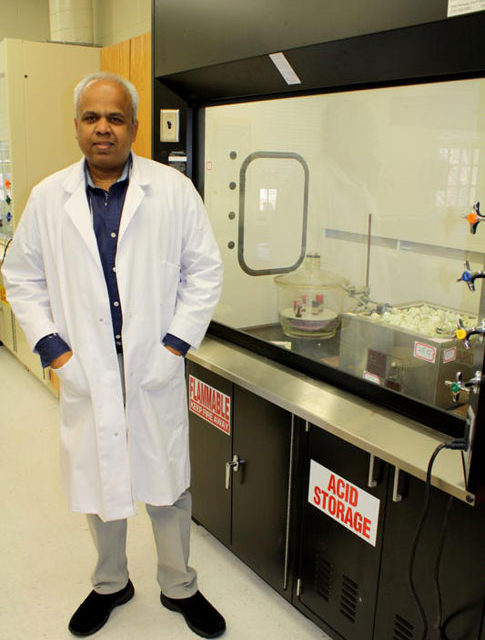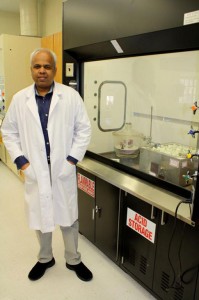By Shane Miller (Whetstone Contributor)
Before Wesley College’s science department received two grants worth more than a half-million dollars, students and professors had a hard time storing and measuring basic chemicals.
Potentially explosive material and acids were not stored safely. Some chemical reactions were not measured efficiently. Now, they are.
“Before the changes, the lab was in horrible condition,†said Peter Lorchak, a senior nursing major. “Storage was an issue and the grant gave the science department an opportunity to upgrade the labs, the technology and equipment to perform more accurate research.â€
New laptops were installed with Kinet (K-eye-net), a program that calculates chemical reactions and compounds more accurately and quickly than a scientist can by hand.
“With my compound (vinyl chloroformate), the reactions occur so quickly, in order to calculate correct data it was nearly impossible to do by hand,†Lorchak said. “Kinet takes the readings as soon as the reactions occur.â€
A computer with Kinet is plugged into a large container with glass sliding windows where lab assistants conduct their experiments.
Once the experiment begins, Kinet dips swabs into the compound solution. As the reaction occurs, the software records the rate instantly.
The science department received $281,676 from the National Science Foundation and an additional $277,000 from the National Institutes of Health-National Center for Research Resources-IDEA Network of Biomedical Research Excellence.
Dr. Malcolm D’Souza was responsible for obtaining the grant, but said everyone did their part.
“All members of the faculty and staff contribute significantly to the program,†D’Souza said. “The department has various professors that come from well-respected fields to give a quality education to the students.â€
Lorchak is a part of D’Souza’s research group, which is working to reveal compounds that are used in dyes and drugs.
“I am currently finalizing my experiment of vinyl chloroformate,†Lorchak said. “I’m trying to see how the chemical reacts from various solvents and revealing this information will hopefully go towards improving medical drugs.â€
Brian Mahon, senior biochemistry major, said that the grants helped improve safety.
“These improvements have made our working environment much safer and also more comfortable in the lab,†Mahon said.
Even with the grant, the renovation has yet to be completed.
“The rest of the labs should upgrade for safety reasons,†Lorchak said. “Our computer lab is a bit small and when full to capacity it can be uncomfortable to work in.â€
Mahon added that to complete the renovation, more funding will be required.





